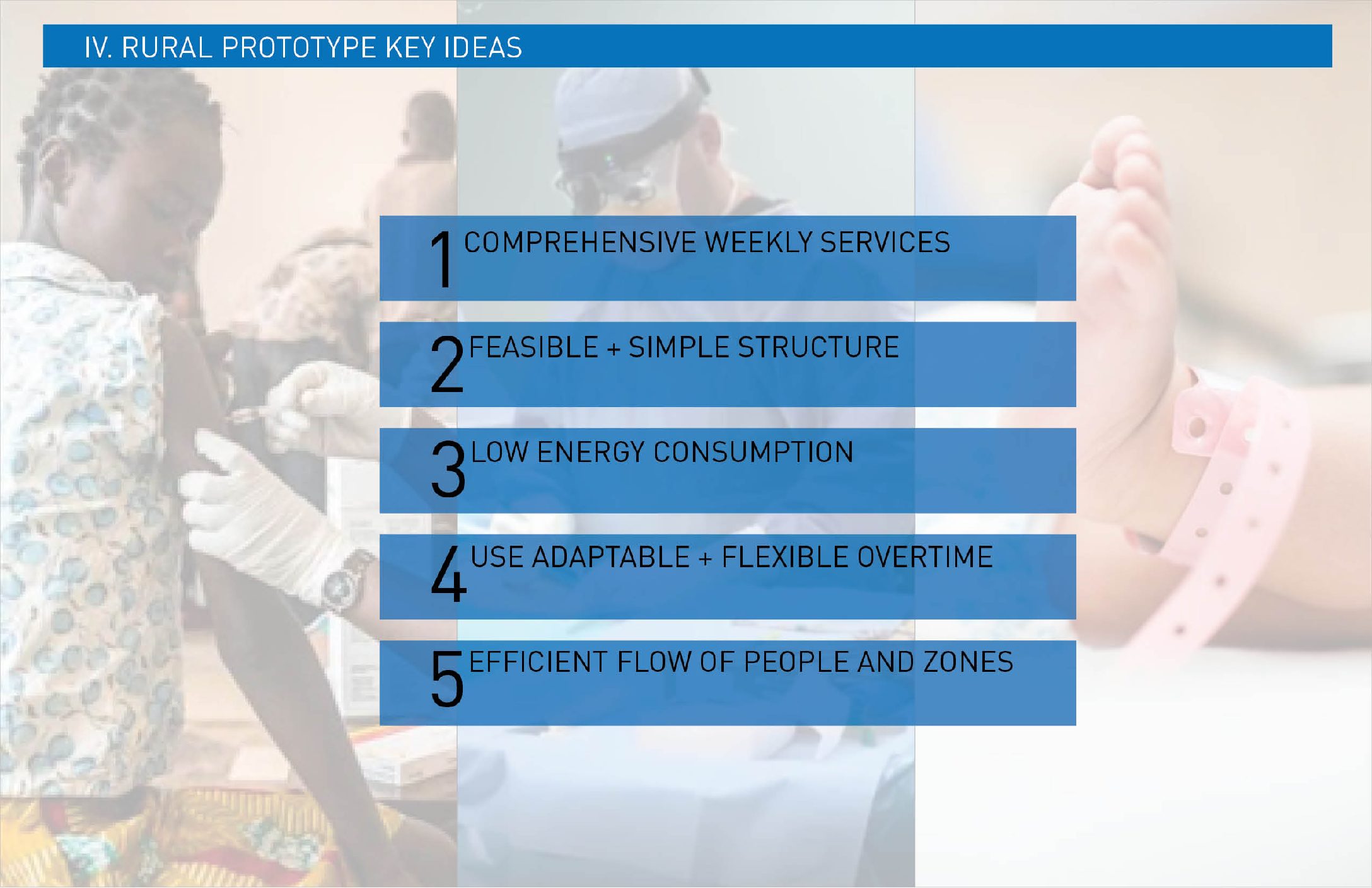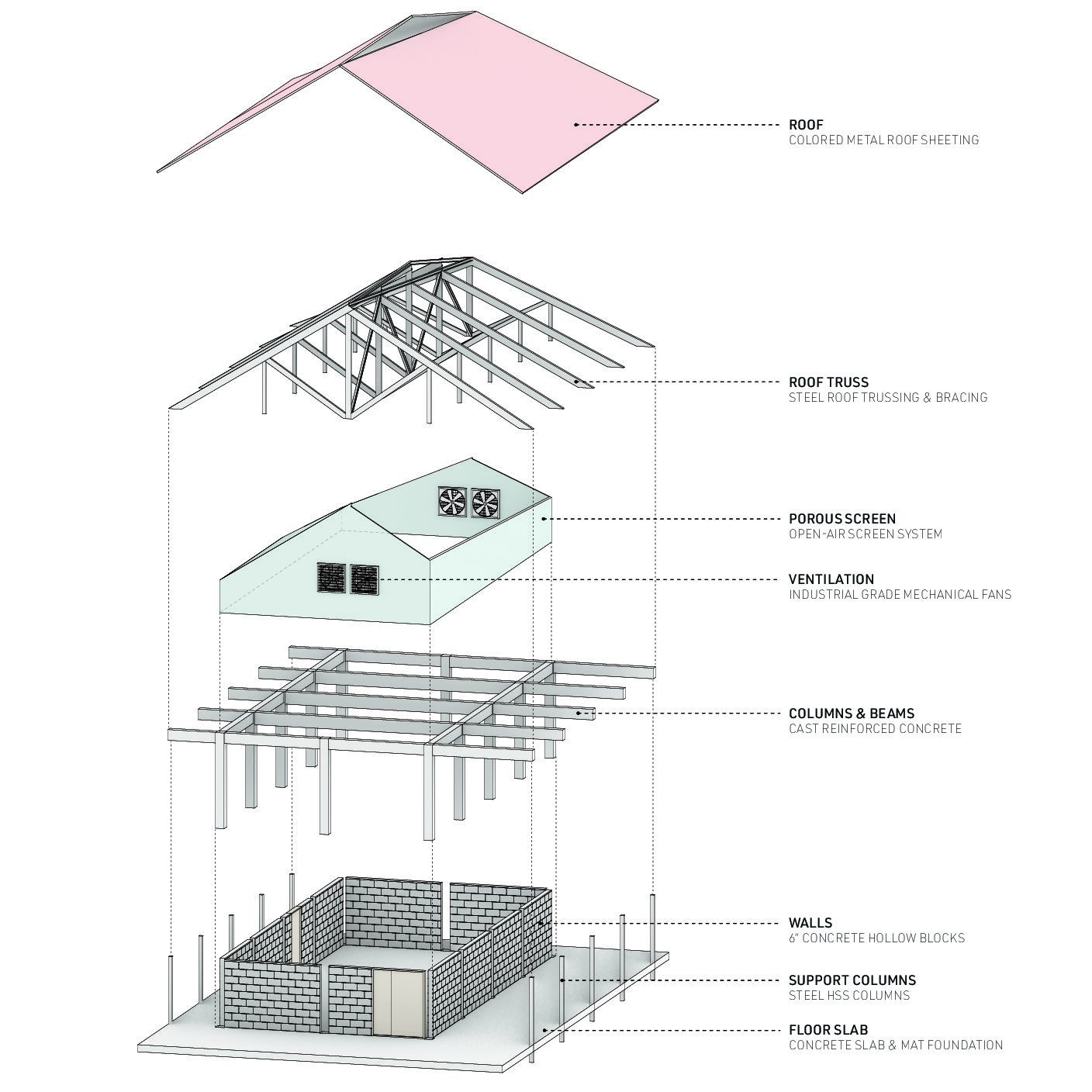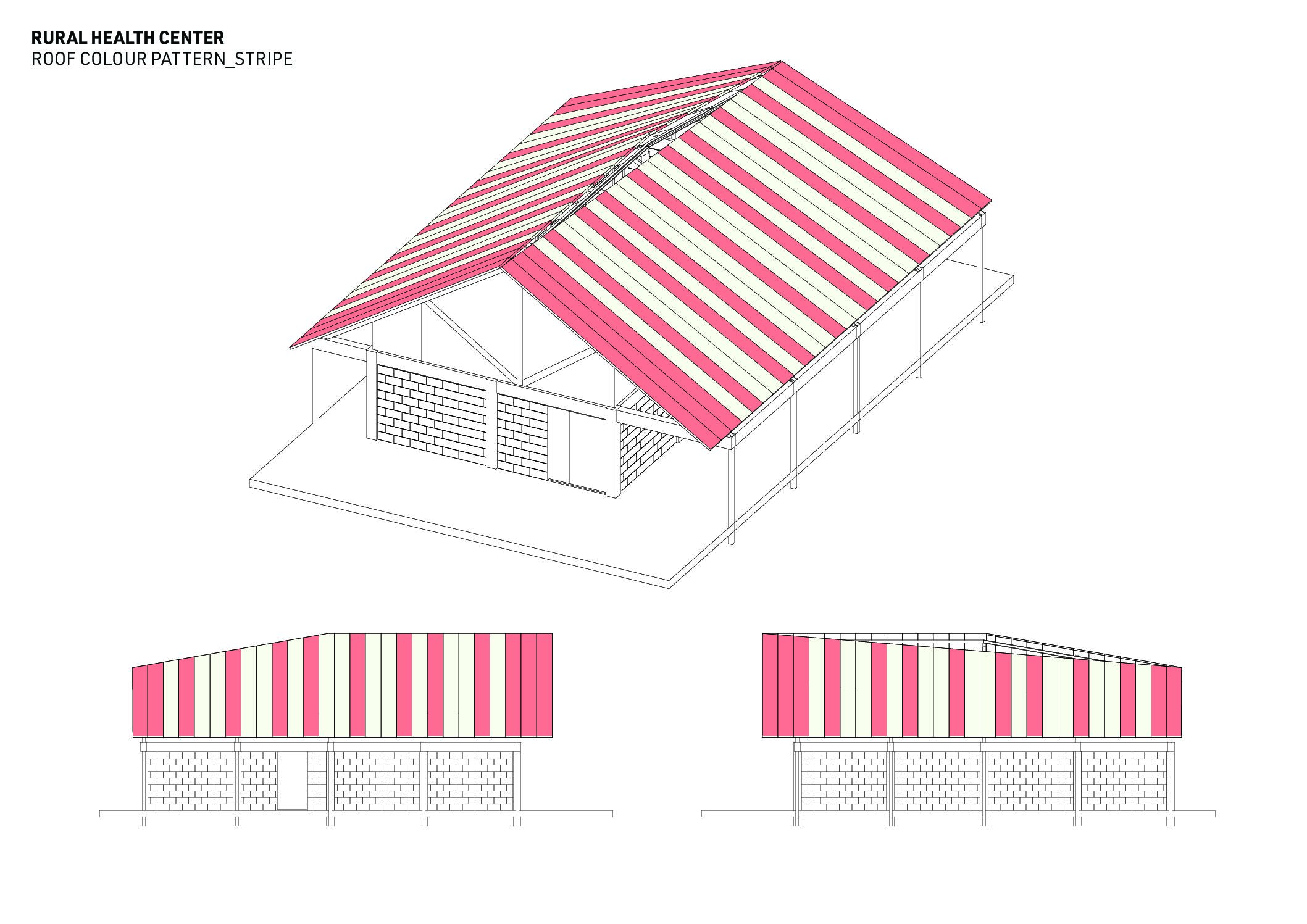Research Project: Rural Health Prototype
Location: Siteless
Type: Research Project
Health centers are the backbone of a comprehensive healthcare system for rural communities without efficient or convenient access to large hospitals. A health center provides a suite of routine health services—including preventive care, immunization, minor assistance, and newborn and reproductive care—enhancing access to services in rural areas and reducing the burden on regional hospitals. SURBA’s rural health center prototypes provide a modular framework that can provide a range of health services while being adapted to respond to emergencies. The design is optimized for reduced cost, ease of construction, and natural ventilation, allowing it to be deployed quickly and with local labor while minimizing the impact on the environment.
The flexible prototype can support a range of healthcare uses while still maintaining spatial separations that prevent cross-contamination. Highly adaptable, it can be deployed as a quarantine shelter during the COVID-19 pandemic and later retrofitted to offer routine health services. This reduces the need to build new facilities from the ground up, making for a sustainable model to develop healthcare infrastructure.
The health center prototype can be scaled from its most essential elements to a large multi-faceted regional hub. At a larger scale of investment and space, a health center can improve access to health services regionally and introduce public programs that strengthen the community as a whole. The specific needs of each region will determine what program should be added to the health center to create a comprehensive health system. An example of a large health center prototype is the Memphis Mission Hospital by CAZA.
Project contributions also include: Laura del Pino, Alden Ching, Kate Sarmiento, Ignacio Revenga, Jun Deng, Xiao Tan, Queenie Xu


